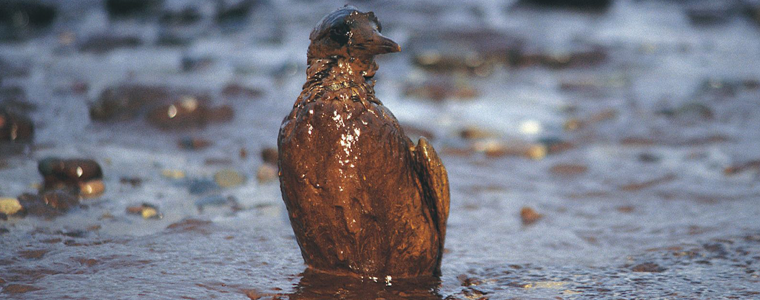Whenever there’s a “disaster,” a wake-up call is sure to follow.
Natural calamities serve to wake us up to the need for better emergency preparedness, while manmade fiascos jolt us to rethink our policies, procedures, technology and environmental impact. What lessons do we learn and how do we apply them to preventing future disasters?
Those are exactly the questions on the table at an Oil Spill Response forum in the U.S. next week. The University of New Hampshire is hosting nearly 40 scientific experts and industry specialists for a two-day forum on October 28-29, “Oil Spill Response: 25 Years After the Exxon Valdez and in the Wake of Deepwater Horizon, What Have We Learned and What Are We Missing?”
Four years in the wake of the Deepwater Horizon oil spill, the largest accidental oil spill in world history, and decades after the Alaskan debacle, experts are still getting a handle on it all.
Since we began transporting petroleum across our oceans, oil tankers, pipelines and offshore oil wells have exploded, crashed, collided or collapsed, causing extensive short and long-term damage to marine and coastal habitats and ecosystems. Spills have also directly affected our food chain, fisheries and economic livelihood.
These events have been disastrous to our ocean’s environment, no doubt. But the real tragedy is the fact that large accidental oil industry spills account for "only" 10-15 per cent of all the oil that enters the ocean every year! While the disasters and their aftermath make the news, there are many other constant sources of oil seeping into our oceans from our everyday addiction to hydrocarbons.
Deepwater Horizon was a massive spill, releasing about 200 million gallons of oil over the 86 days of the spill. Yet an estimated 500-700 gallons of oil enter our oceans worldwide each year. At least half of that is estimated to come from our consumption of oil on land and sea, such as dribbling runoff from cars, illegal dumping of motor oil waste and other industrial lubricants, leakage from commercial shipping and recreational boats, and hydrocarbon vapors (VOCs).
Everything that we flush down our drains flows first to a sewage treatment plant, then into the ocean. Sewage treatment plants treat human waste, most are not effective at removing hydrocarbons and chemicals. Oil may in fact kill the good bacteria treatment plants use to purify sewage.
Besides the human sources, there is also natural oil seepage from seabeds into the oceans. Researchers say, however, that much of the natural oil is consumed by ocean bacteria that have evolved to eat certain oil molecules.
We know from the big and small spill disasters that animals directly exposed to oil suffer health problems. What is not known is the full impact of what the constant, chronic oil doses are doing to the ocean environment and sea life.
Our oceans carry a large burden of our hydrocarbon habits. To its credit, the oil industry has seen a reduction in overall number of oil spills in recent years, due to changes made from their big, slick, costly wake up calls. It’s time we find ways to clean up our act and consume and waste less of the black stuff that could ultimately become a bigger disaster in the long run.



